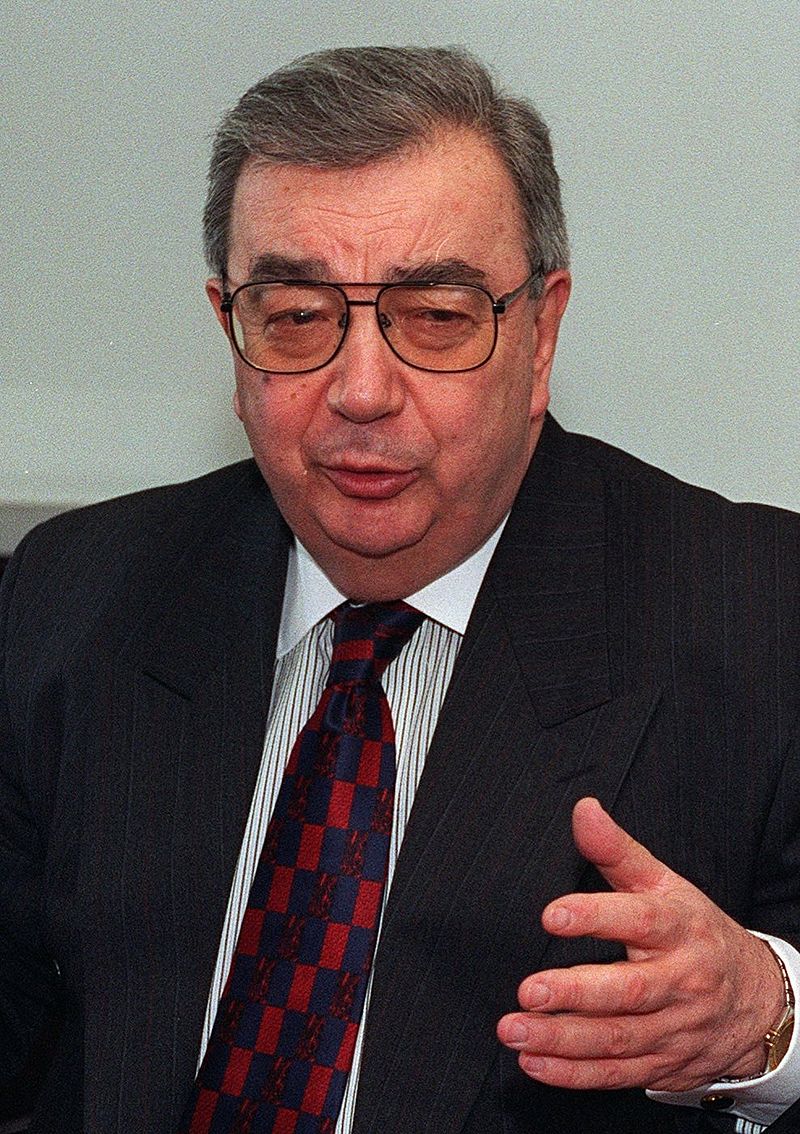The man who made Russia perpetually paranoid
- By Sumantra Maitra
 0 Comment(s)
0 Comment(s) Print
Print E-mail China.org.cn, July 1, 2015
E-mail China.org.cn, July 1, 2015
Yevgeny Primakov, former Russian prime minister, foreign minister, spymaster and diplomat, has died at the age of 86. The cause of his death is unclear, although it was known that he had been battling cancer for a long time. President Vladimir Putin offered condolences to the Primakov family and has ordered a state funeral for the former leader.
|
Former Russian Prime Minister Yevgeny Primakov [File photo] |
The greatest legacy of Primakov – who was a journalist, academic, statesman and scholar – is his deliverance of Russia from economic ruin. His Machiavellian manipulations of Russian traditional allies in the Arab world, deep distrust of the West, and his idea of a multipolar world which led to the BRICS organization as we know it today have left a divided legacy. He was perhaps one of the last Soviets, and his death marks the end of a fraught era in Russian and world politics.
Yevgeni Maksimovich Primakov was born in Kiev in modern-day Ukraine, which was then part of the Soviet Union, and he grew up in Tbilisi, modern-day Georgia. His mother, who was Jewish, largely raised young Primakov alone, as records of his father are scarce, and it is alleged that his father was sent to the Gulags for harboring Trotskyist sympathies. Primakov didn't know his father well and was not particularly vocal about his Jewish identity due to anti-Jewish violence in Soviet Russia. He specialized in Arabic and Economics at the Moscow Institute of Oriental Studies and continued his postgraduate education at Moscow State University. He was posted in various Middle Eastern countries as a correspondent for Soviet Radio and Pravda, a position which was often a cover for intelligence operatives.
After a brief stint in journalism and intelligence, Primakov returned to Russia and continued his career in academia at the Institute of International Relations. His entry into active politics in 1989 was relatively late compared to other Soviet leaders. He became a member of the presidential council of Mikhail Gorbachev, and after the failed August Putsch in 1991, he was appointed deputy chairman of the KGB. In this capacity, he led failed diplomatic efforts to persuade Saddam Hussein not to invade Kuwait. As a brilliant mind in the dying days of the Soviet empire, Primakov almost helplessly recognized the declining influence of the Soviets in the heyday of American hyper power. The Iraqi invasion of Kuwait and its aftermath possibly played the largest role in shaping his deep distrust of the West, which was instrumental in his personal maturation and the drafting of post-Soviet Russian foreign policy.







Go to Forum >>0 Comment(s)